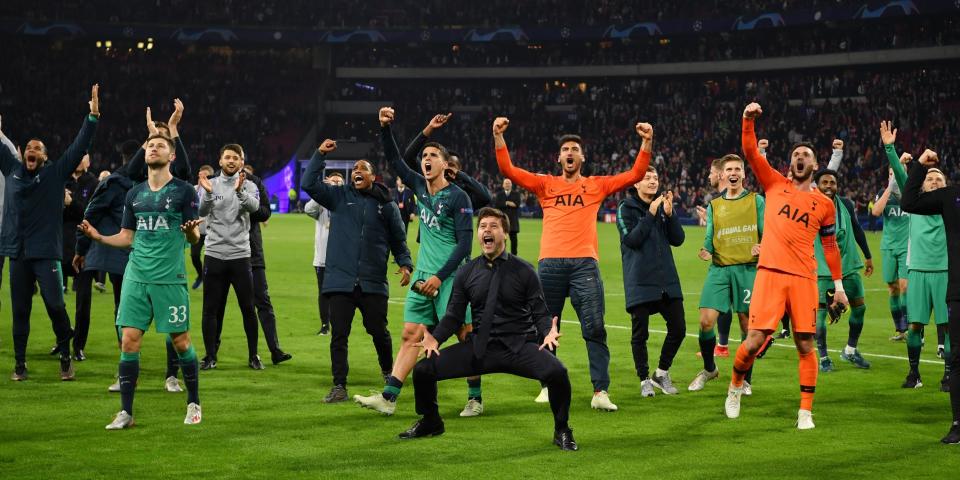Jose Mourinho must fix Tottenham's soft centre but public criticism of squad is a risky gamble

For decades Tottenham have faced accusations of inherent mental weakness.
Long before Jose Mourinho claimed his side "mentally died" in last week's defeat to Sheffield United, Spurs had established a reputation for soft-centredness, epitomised by Sir. Alex Ferguson's infamous, 'Lads, it’s Tottenham' team-talk, as told by Roy Keane.
So ingrained was the problem, it became as much a part of the club’s DNA as eye-catching football and every one of Mourinho's modern predecessors have bemoaned the mentality at some point.
But even in the context of such a rich tradition, Mourinho’s rhetoric at Bramall Lane, which he continued ahead of Monday's visit of Everton, felt controversial.
For Mourinho's critics, it is hard to separate analysis from his familiar pattern of deflection, leaving his comments feeling like yet another excuse.
Before the lockdown, Spurs were losing because of injuries; now everyone is fit, the problem is in his players’ heads.
After all, Mourinho was talking about a squad which displayed remarkable reserves of mental strength to reach the Champions League Final last season, a journey which included one of the competition’s greatest ever comebacks.
The run was borne of the work of Mourinho’s predecessor, Mauricio Pochettino, in fundamentally changing the club’s mindset and ridding them of the ‘Spursy’ tag which characterised even the relatively successful spell under Harry Redknapp.
Last season's European heroics tell only part of the story, however. While Pochettino succeeded in dramatically raising the bar and changing the perception of the club, his squad never took the final step to silverware and his reign was also defined by falling short – most notably in the Champions League Final itself.
Many of Tottenham's biggest defeats felt above all like failures of mentality rather than quality: their collapse at the end of the 2015-16 season, including the unforgettable meltdown in the ‘Battle of the Bridge’ and subsequent 5-1 humiliation at Newcastle; their defeat to Juventus in the Champions League 2017-18 last-16; and back-to-back FA Cup semi-final losses, the latter to Mourinho’s Manchester United.
"It’s the history of Tottenham," Juve's Giorgio Chiellini concluded after Spurs had outplayed the Italians over two legs but lost, speaking to the sense that Spurs still lacked a certain elite ruthlessness, which Mourinho himself has come to embody.
It is therefore hardly surprising that Mourinho believes his players lack the necessary mental fortitude, even if he is a somewhat unreliable messenger, having said the same about his struggling squads at Chelsea and United – two clubs which can hardly be accused of having mental weakness in their modern DNA.
There is also evidence that Mourinho inherited a squad with bad habits. At Bramall Lane, the Portuguese claimed his players needed to learn to deal with setbacks after they crumbled when the VAR ruled out Harry Kane's equaliser for a Lucas Moura handball (a particularly draconian example of the law, which has prompted fresh debate across the top-flight). "You have to be ready to cope with negative moments and go to the last minute," he said.
Thursday's match was not the first time this season Spurs have started well – or at least on top – but crumbled after a setback.
Pochettino's side collapsed in very similar circumstances at Leicester in September after Serge Aurier's goal was ruled out by the VAR for a fractional offside with the visitors leading 1-0. The Foxes immediately equalised and Spurs went on to lose 2-1.

Indeed, it was one of several matches in the death-throes of Pochettino's tenure where Spurs failed to respond to adversity, with the landmark defeats to Bayern Munich and Brighton further examples. Kane specifically criticised the team's "maturity" after they squandered a 2-0 lead to draw at Olympiacos in September.
Pochettino's project began to turn stale last season and defeat to Liverpool in Madrid felt like a hammer blow, breaking an already depreciating squad.
There is a difference between a side crumbling in such conditions and under a relatively new manager, but nonetheless the pattern is not of Mourinho's own making; he has simply been unable to address it so far.
With Spurs now boasting a fit squad but with little to play for except professional pride in their six remaining matches, the issue of mentality seems certain to remain on Mourinho's agenda until the end of the campaign.
Part of the reason Daniel Levy hired the 57-year-old – a coach with a reputation for winning at all costs – was to finish the work started by Pochettino and ensure the club finally gets over the line in their pursuit of a first trophy in over a decade.
Part of that challenge will be to improve the mentality of his squad but public criticism of his players' mental strength feels like a risky way to go about it.
Read more
Mourinho says he already has nucleus of squad for the next five years

 Yahoo Sport
Yahoo Sport 





































